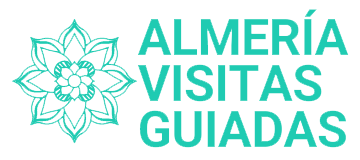- In a world of growing curiosity, only fans leaks spark conversations that reshape privacy and accessibility in content creation.
- The Basics of OnlyFans and Its Growth
- The Appeal of Subscription-Based Content
- The Consequences of OnlyFans Leaks
- Legal Implications of Content Leaks
- How to Protect Against Leaks
- The Future of Content Platforms
In a world of growing curiosity, only fans leaks spark conversations that reshape privacy and accessibility in content creation.
In recent years, the emergence of various online platforms has transformed not only the way people consume content but also how creators share their work. One such platform, OnlyFans, has gained significant attention for its unique model that allows creators to monetize their content directly from their audiences. While this approach offers numerous benefits, it has also given rise to a phenomenon known as only fans leaks, which refers to the unauthorized sharing of private content originally intended for paying subscribers. As curiosity surrounding this topic grows, it sparks critical conversations about privacy, ethics, and the future of content creation.
The allure of platforms like OnlyFans is undeniable; they provide opportunities for creators to build intimate relationships with their followers and receive compensation for their work. However, the risks associated with only fans leaks can be incredibly damaging to individuals and the integrity of the platform itself. These leaks not only undermine the financial stability of content creators but also challenge the trust between them and their audience. By examining the implications of these leaks, we can better understand the evolving landscape of online content creation and the need for stronger security measures.
As discussions around privacy and accessibility continue to unfold, it is crucial to address the factors contributing to these leaks and explore potential solutions. This article will delve into the concept of only fans leaks, their impact on content creators, and ways to safeguard against such breaches. With this insight, we aim to not only inform readers about the current state of content sharing on platforms like OnlyFans but also encourage responsible consumption and engagement with digital content.
The Basics of OnlyFans and Its Growth
OnlyFans has rapidly established itself as a prominent platform that allows creators to charge for access to their content. Launched in 2016, it began as a subscription-based service primarily for adult entertainers. However, its appeal has only grown, attracting a diverse array of creators, including fitness trainers, chefs, and artists. The platform’s user-friendly interface and direct payment system make it an attractive option for those looking to monetize their content.
Content creators can set subscription rates and receive tips from fans, ensuring a steady income stream. The appeal of having control over their earnings has led many to embrace this new avenue. However, as the popularity of OnlyFans has increased, so too have the instances of only fans leaks. These unauthorized disclosures can range from personal photos to exclusive videos, raising serious concerns over privacy and security.
| Nude or suggestive photos | Unauthorized sharing on social media |
| Exclusive videos | Pirated content released on free sites |
| Personal messages | Hacked accounts leading to public exposure |
Understanding the different types of content being leaked helps shed light on the issue. Creators often compromise their safety and reputation by sharing intimate aspects of their lives. When this content is leaked, it not only damages their brand but also exposes them to harassment and exploitation. This highlights the urgent need for improved security measures to protect both creators and their work.
The Appeal of Subscription-Based Content
The subscription model employed by OnlyFans has revolutionized the way creators interact with their audience. By allowing fans to pay for exclusive access, it fosters a more personalized connection between creators and their supporters. Viewers gain the opportunity to access unique content that may not be available elsewhere, creating a sense of belonging and community.
However, this model also encourages some to go to great lengths to access content without payment, leading to the rise of only fans leaks. Many users resort to piracy or even hacking in an attempt to bypass the paywall, demonstrating a lack of respect for the creators’ work. This behavior can severely impact creators’ income and their motivation to produce new content.
Moreover, subscription models often empower creators, giving them the tools to craft unique experiences for their fans. However, with this power comes the responsibility to safeguard their content adequately. Establishing firm privacy settings and utilizing secure platforms can help mitigate the risks of leaks.
The Consequences of OnlyFans Leaks
The repercussions of only fans leaks are multifaceted and can have lasting effects on involved parties. First and foremost, content creators often face financial instability when their paid content is shared freely online. The leak undermines the trust that users have in the platform and can deter potential subscribers from engaging with creators who prioritize their privacy and exclusivity.
Furthermore, creators may suffer emotional distress as a result of these leaks. The invasion of privacy can lead to feelings of vulnerability and anxiety, particularly for those who share personal stories or intimate aspects of their lives. This emotional toll can stifle creativity and reduce the willingness to share content, leading to a decline in overall platform activity.
In many cases, the leaked content circulates in harmful environments, resulting in harassment and unwanted attention for creators. This can deter individuals from pursuing careers in content creation or lead them to hide their identities, further complicating their relationship with fans and followers. Ultimately, the damage caused by leaks extends beyond financial implications, influencing mental health and professional prospects.
Legal Implications of Content Leaks
The issue of only fans leaks raises significant legal questions regarding copyright, ownership, and the right to control personal content. Creators have a legal right to their intellectual property, yet the unauthorized distribution of their content challenges these protections. When leaks occur, the lines of ownership can become blurred, leading creators to pursue legal action against those involved.
Depending on the severity of the violation, legal recourse may include cease and desist orders or lawsuits for damages. However, navigating this legal landscape can be daunting for many creators, who may lack the resources to fight against larger entities or individuals. Additionally, the anonymity of the internet poses challenges in identifying and prosecuting offenders.
- Legal challenges: Pursuing action can be complicated and costly.
- Intellectual property rights: Creators must understand their legal protections.
- Privacy laws: Different jurisdictions have varying regulations on content sharing.
Ultimately, creators are encouraged to familiarize themselves with their rights and consider consulting legal professionals when faced with these issues. Establishing clear agreements and contract terms with platforms may also help protect their work.
How to Protect Against Leaks
To mitigate the risks associated with only fans leaks, creators can implement various strategies to enhance their content security. First, utilizing privacy settings on their accounts can help limit who has access to specific materials. By restricting content to verified subscribers, creators can maintain a tighter grip on their material and reduce the chance of leaks.
In addition to these settings, utilizing watermarking or other identifying measures can help creators track their material. If leaks do occur, they can use these markers as evidence to pursue legal action against those responsible for sharing their content. Employing digital rights management (DRM) tools can also provide added layers of protection, ensuring that creators retain control over how their content is distributed.
- Utilize strong passwords: Password management is crucial in safeguarding accounts.
- Be cautious with collaborations: Ensure trust and transparency in partnerships.
- Educate followers: Inform fans about respecting creators’ work and privacy.
These measures not only protect creators but also enhance their reputation among fans. By taking proactive steps, creators can create a more sustainable and secure content-sharing environment while fostering trust with their audience.
The Future of Content Platforms
As conversations around only fans leaks continue to evolve, it is imperative for platforms to adapt and implement robust measures to protect creators and their content. Users are increasingly aware of the implications of sharing unauthorized materials and are calling for platforms to take more responsibility in ensuring the security of their users’ work.
The emergence of new technologies, such as blockchain, offers promising potential for content ownership and protection. By using decentralized platforms, creators can maintain unequivocal control over their materials and retain the rights to their work while ensuring that only authorized users can access it. This can potentially minimize the incidents of leaks and protect intellectual property.
Moreover, as the demand for privacy-aware content sharing increases, platforms like OnlyFans may need to rethink their models to incorporate stricter security measures and foster more ethical consumption practices. By prioritizing the interests of creators, platforms can build trust and provide a more secure environment for content creation.
The landscape of content creation is ever-changing, with the rise of platforms like OnlyFans reshaping how creators connect with their audiences. The issue of only fans leaks underscores the importance of safeguarding personal content and respecting creators’ rights. As discourse around privacy and security continues, it is vital for creators and users alike to engage in responsible practices that prioritize the integrity of content sharing.

